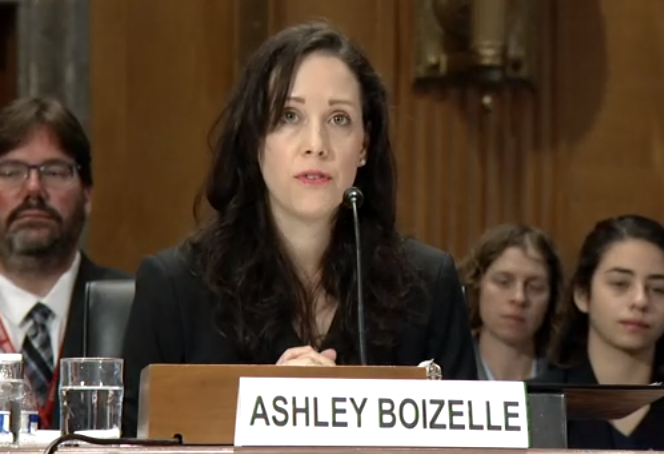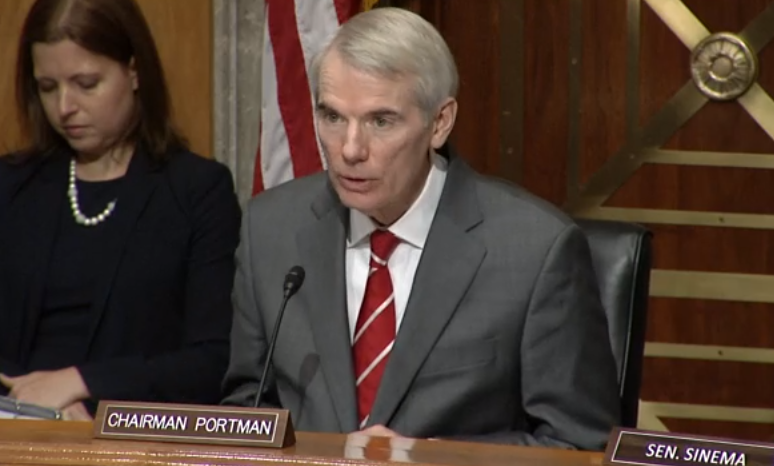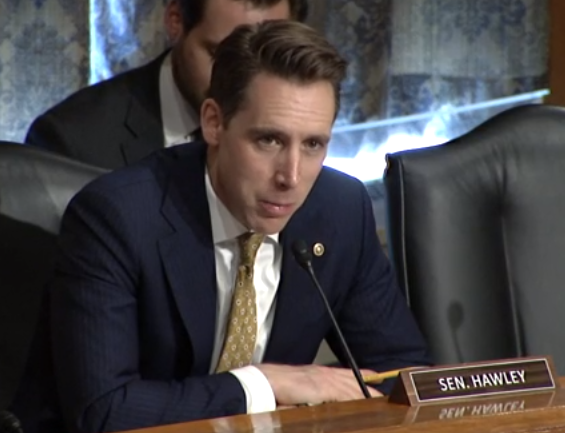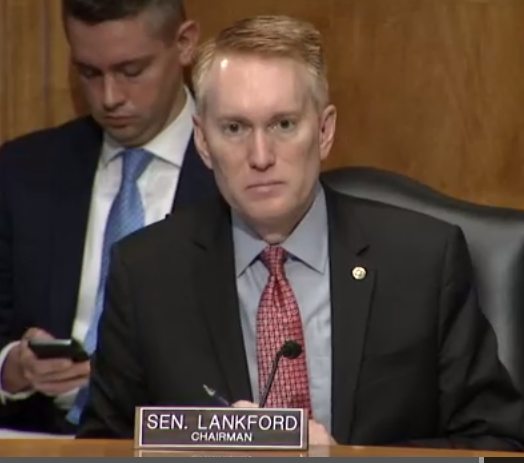FCC: Rulemakings Aren't Opinion Polls
The smarter way to stay on top of the multichannel video marketplace. Sign up below.
You are now subscribed
Your newsletter sign-up was successful
The FCC is telling Congress that it is not the number of comments it receives in a proceeding, or who files it-- unless it offers up assertions based on particular expertise--that matters. Instead it is the substance that counts.
That came in testimony form Ashley Boizelle, FCC deputy general counsel, to the Homeland Security and Government Affairs Permanent Subcommittee and the Subcommittee on Regulatory Affairs and Federal Management. The FCC's reception from committee leadership was not particularly receptive--the committee had included the FCC in a report about abuses of the comment system.

Related: FCC Settles Net Neutrality Docket Suit
"Guided by our statutory obligations and case law interpreting and applying the APA [Administrative Procedures Act], we focus on the content of comments, rather than the number that advance a specific position," she told the legislators in testimony Thursday (Oct. 24). "Courts have made clear that we are not required to tally the number of comments for or against our proposed action; a rulemaking is not a public opinion survey. Likewise, the identity of a filer, although potentially relevant if the comment purports to offer factual assertions or analysis
based on expertise, is generally not critical to our analysis. It is usually the substance of a comment that matters."
The hearing was a review of the electronic comments systems, in this case the FCC's ECFS system for collecting comments and making them available for public perusal. The FCC's comment system has drawn criticism for the number of duplicate and fake comments filed in the net neutrality docket, including a half million from Russian addresses and millions from fake e-mail generators.
Permanent Subcommittee Chairman Rob Portman (R-Ohio) said that despite those obvious problems, the FCC had not fixed them and something needed to be done.
The smarter way to stay on top of the multichannel video marketplace. Sign up below.

The FCC's net neutrality comment docket has been a flashpoint for net neutrality activists and the subject of outside investigations, including by the New York State Attorney General and FBI.
Asked how so many bogus comments, some from Russian e-mail addresses, wound up in the net neutrality docket, FCC Chairman Ajit Pai has said in the past that the FCC was erring on the side of inclusiveness and ease of filing. Boizelle echoed that. Boizelle explained how the FCC views the process and the potential for gaming the system inherent in that openness.
Related: Pallone Says FBI Is Investigating Net Neutrality Comment Docket
"We have generally taken the view that more robust public participation and a complete administrative record are features of rulemaking, rather than flaws," Boizelle said. "But we have always understood that there is a trade-off involved in this approach: The easier it is for people to comment on our proposed rules, the easier it is for bad actors to abuse the system. We have endeavored to mitigate some of the opportunities for mischief by ensuring sufficient network capacity to prevent system disruptions and optimizing ECFS’s search capabilities so that those looking to review and respond to substantive comments can find them."
But she also pointed out that the FCC is in the midst of an overhaul of ECFS to improve the system, following the guidance of a GAO performance audit and recommendations of the FCC's Inspector General.
Even as Boizelle was testifying, the FCC was reaching out to stakeholders to participate in round tables on improving the system. Among the changes contemplated include instituting CAPTCHA to distinguish humans from bots, tools to authenticate identities, and creating docket homepages to highlight findings.

Sen. Josh Hawley (R-Mo.) asked about the 8 million of the 24 million net neutrality comments that came from fakemailgenerator.com. She said that was their understanding. He asked about the over 500,000 apparently associated with Russian addresses. Again the answer was yes. She also agreed that some two million comments used stolen identities.
Hawley was not done. He asked about the FCC policy, per the subcommittee report, of accepting and posting comments with duplicates, copyrighted content, profanities, irrelevant material, including files with viruses. She said that was correct, and confirmed that included attacks on FCC Chair Ajit Pai, including threats.
The Senator asked about the tradeoffs the FCC saw in making it an easy, inclusive, process if threats and abuses was what it was allowing.
She said accessibility was out of a desire to let the public meaningfully participate. She said the FCC is currently evaluating that historic balance and "exploring how to recalibrate that balance." But she said putting human eyes on all those comments to screen them was "untenable" in most circumstances.
Hawley wanted more specifics. She pointed to a cross-bureau working group working to update the process per the committee reports findings.

Sen. Lankford (R-Okla.) said that the problem was not just with the FCC and other government sites. "You can go to any one of our Facebook pages and see the comments that are posted there and also see a lot of 'energetic' involvement."
He said the issue is allowing all that comment, but also filtering through to find out what is helpful."
Asked whether the FCC had considered the regulations.gov comment system used by many agencies. Boizelle said she thought ECFS was the right tool for the FCC because it was designed to meet its unique needs and comment volumes of a different scale from many peer agencies.
She said that the FCC was not allowing executable files to be posted, had not accepted them since September 2017, so had not accepted any infected executable files. She said they have not been able to identify any infected executable files currently in the system and that all files are now screened with antivirus software. "Good, good," said Lankford.
She said if anyone has information about infected files still in the docket, let the FCC know.
Boizelle said the FCC was not yet using CAPTCHA and Sen. Portman wondered why, asking if it was a case of cost or perhaps better software out there the FCC was considering. Boizelle said it had been described to her that sometimes bots can be analogous to a post-card campaign so that they aren't always inherently nefarious. But she agreed that there was opportunity for significant abuse. She said the FCC was exploring scrapping an interface that allows the filing of mass comments from grassroots organizations because the FCC can deal with those submissions without machine-to-machine communications.
Contributing editor John Eggerton has been an editor and/or writer on media regulation, legislation and policy for over four decades, including covering the FCC, FTC, Congress, the major media trade associations, and the federal courts. In addition to Multichannel News and Broadcasting + Cable, his work has appeared in Radio World, TV Technology, TV Fax, This Week in Consumer Electronics, Variety and the Encyclopedia Britannica.

